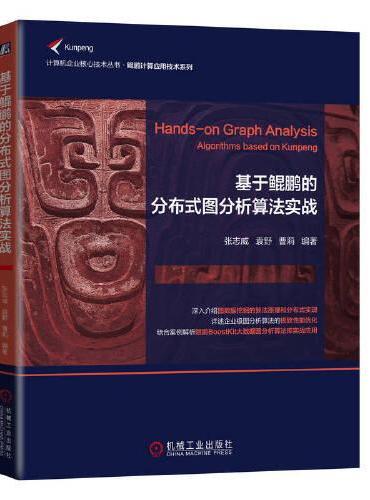新書推薦:

《
建安:官渡大决战(196—200)
》
售價:NT$
245.0

《
中亚民族史
》
售價:NT$
840.0
![人工智能与智能制造:概念与方法 [美]马苏德·索鲁什 [美]理查德·D.布拉茨](http://103.6.6.66/upload/mall/productImages/24/46/9787111765912.jpg)
《
人工智能与智能制造:概念与方法 [美]马苏德·索鲁什 [美]理查德·D.布拉茨
》
售價:NT$
640.0

《
中平:东汉王朝大崩溃(184—189)
》
售價:NT$
245.0

《
基于鲲鹏的分布式图分析算法实战
》
售價:NT$
495.0

《
中国历史研究入门(全二册)
》
售價:NT$
1290.0

《
夺回大脑 如何靠自己走出强迫
》
售價:NT$
299.0

《
夏天,19岁的肖像(青鲤文库)岛田庄司两次入围日本通俗文学奖直木奖的作品 ,同名电影由黄子韬主演!
》
售價:NT$
225.0
|
| 內容簡介: |
|
英语学习的终极目标不是为了习得语言本身,而是培养与西方人进行有效沟通的能力。《大学英语拓展课程系列·跨文化交际技巧:如何跟西方人打交道(学生用书)》不仅有利于夯实学生的听、说、读、写基本功,更有利于学生养成良好的跨文化交际习惯,掌握有效的跨文化交际技巧,熟识西方文化的方方面面。通过中西方案例分析、课堂讨论、来信求助、专家释疑等新颖、活泼的实战演练形式,本教程不仅能持续吸引学生的注意力,更能最大限度地调动学生的参与度,真正做到在做中学。
|
| 目錄:
|
Unit1
LanguageTools:
SuggestingPossibilities
Encounter:
TheTaxi
InterculturalCommunicationReading:
InterculturalCommunicationandIJnderstandingWesterners
LettertoFran:
NotEating
Fran''sResponse:
NotEating
CultureDifferenceReading:
IndividualistandCollectivistCultures
Unit2
LanguageTools:
DifferentDegreesofProbability
Encounter:
TheGift
InterculturalCommunicationReading:
InterpretingWhatForeignersMean
LettertoFran:
AHelpingHand
Fran''sResponse:
AHelpingHand
CultureDifferenceReading:
PublicandPrivateBehavior
Unit3
LanguageTools:
MakingandQualifyingGeneralizations
Encounter:
Mistakes
InterculturalCommunicationReading:
GeneralizationsandStereotypes
LettertoFran:
WhoPays?
Fran''sResponse:
WhoPays?
CultureDifferenceReading:
DifferenceinRankandPower
Unit4
LanguageTools:
FeelingsandPartsofSpeech
Encounter:
TheInvitation
InterculturalCommunicationReading:
StressinInterculturalEncounters
LettertoFran:
TheShopper
Fran''sResponse:
TheShopper
CultureDifferenceReading:
WesternCommunicationStyles
Unit5
LanguageTools:
AskingPersonalQuestions
Encounter:
LivingTogether
InterculturalCommunicationReading:
……
Unit6
Unit7
Unit8
Unit9
Unit10
|
| 內容試閱:
|
DifferencesincommunicationstylessometimescausemisunderstandingsbetweenChineseandWesterners.WesternerssometimesfailtounderstandrelativelyindirectorsubtlemessagesfromChinesepeople;infact,theysometimesdonotrealizeamessageisbeingsentatall.WesternersmayalsosometimesmisunderstandwhatChinesepeoplemeanbecausetheWesternersdon''ttakecontextintoaccountenoughwheninterpretingwhatChinesepeoplesay,ortheytakethewordsofChinesepeoplemoreliterallythantheyshould.Forexample,ifaWesternermakesarequestandaChinesepersonrespondsbysayingsomethinglike"I''llthinkitover"(kaolu,kaolu),theWesternermayassumethatthereisagoodchancethattheanswerwillbe"yes."(Infact,thereisabetterchancethattheimpliedansweris"no.")Incontrast,ChinesesometimesdonottakethewordsofWesternersliterallyenough,andreadtoomuchintothecontext.
DifferencesincommunicationstylesmayalsocausebadfeelingsbetweenChineseandWesterners.Westernerstendtodislikeindirectcommunication,andoftenfeelthatChinese"beataroundthebush"toomuchratherthanbeingdirect.Incontrast,ChineseoftenfindWesternerstoobluntanddirect.
ItisimportanttonotethatWesternersarenotallequallydirectintheircommunicationstyles.Forexample,thedirectlow-contextcommunicationstyledescribedaboveismoretypicalofWesternmenthanofWesternwomen.Furthermore,eveninWesterncultureitisgenerallynotconsideredgoodtocommunicatesodirectlyandbluntlythatyouhurtotherpeople''sfeelings,offendthem,orcreateconflict.However,iffacedwithachoicebetweena)expressingone''sideasandfeelings,evenattheriskofupsettingoroffendinganotherperson.
……
|
|





![人工智能与智能制造:概念与方法 [美]马苏德·索鲁什 [美]理查德·D.布拉茨](http://103.6.6.66/upload/mall/productImages/24/46/9787111765912.jpg)




